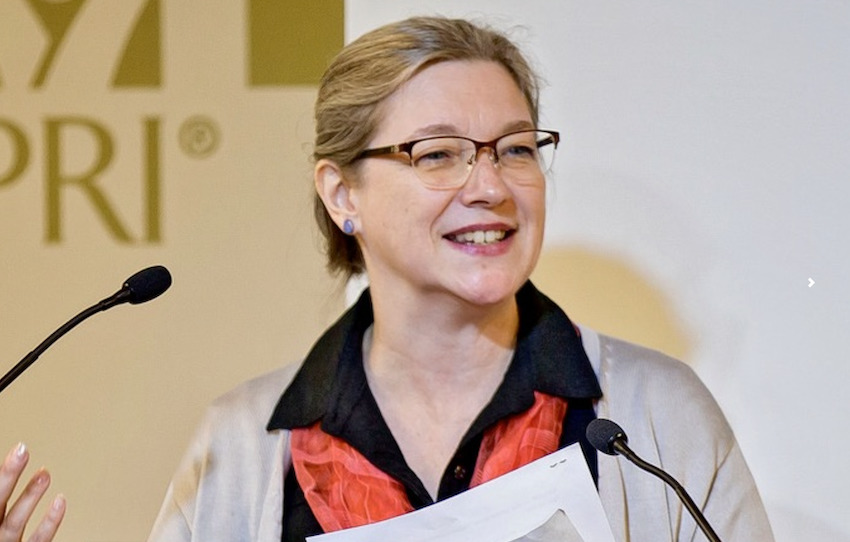Secure tenure and effective governance are central to the future of natural resources and agriculture. Although important on their own, tenure and governance are also embedded in the solutions to key global challenges: climate change; environmental management; poverty; gender equity and women’s empowerment; and nutrition and health.
Since 2011, we have undertaken research and engagement to help address governance and tenure challenges through the CGIAR Research Program on Policies, Institutions and Markets (PIM), a program led by the International Food Policy Research Institute, and which marks its conclusion at the end of 2021.
The PIM Flagship on Governance of Natural Resources was designed to identify actions that can strengthen tenure rights of poor and marginalized people, particularly women, and communities; improve governance of natural resources; and enhance constructive interaction of resource users within shared landscapes.
We have had some important successes. In Tanzania for example, the International Livestock Research Institute (ILRI) worked with government and civil society partners to pilot a joint village land use planning process to protect shared grazing lands for livestock keepers in four clusters of villages covering 150,000 hectares. In addition to those results on the ground, the project helped develop a new form of land use certification, and the process has been adopted by the national government for other areas.
In another example, scientists with the Center for International Forestry Research (CIFOR) worked with 14 multi-stakeholder forums in Brazil, Ethiopia, Indonesia and Peru to understand how to make their processes and outcomes more equitable. The findings prompted collaboration with the participants and organizers of two forums in Peru and one in Indonesia to develop “How are we doing?” a tool designed to support adaptive and reflexive learning.
Pilots of the tool in protected areas in Peru led to a second version developed specifically with and for the state’s National Protected Area Service (SERNANP), for application with its 75 co-management committees, to support participatory and inclusive governance processes.
But these gains and others, including in various other countries, have been complex in the making. Much work is left to be done as the CGIAR research programs transition into initiatives under the One CGIAR system in 2022.
In PIM we focused on two broad overlapping areas – one on enhancing tenure security and one on governing shared landscapes. In addition to individual and household rights, we addressed women’s land rights and addressed tenure not only in agriculture, but also in forests and rangelands, and in relation to water and to common property.
Working with partners, we examined mechanisms and institutional arrangements that can address threats and strengthen tenure. Although a title is often seen as the solution to the problem of tenure security, our work shows that much more is required—and, indeed, titling programs can even increase tenure insecurity for women, pastoralists, or other groups if the complexity of existing tenure arrangements and governance are not addressed. We developed a body of work on the formalization of collective rights and outlined steps to foster change. Identifying and reconciling the interests of diverse communities has also been a central question in landscape governance.
A series of seven recently released briefs illustrate the importance of tenure and governance for the future development of research and action. The first two lay out each of the concepts and its relevance, whereas the other five explore their specific application to the CGIAR impact areas.
Krister Andersson, a professor at the University of Colorado in the United States, defined landscape governance as decision-making processes that seek to create and enforce socially binding agreements regarding people’s interactions with one another and their landscapes. More effective landscape governance can be built by diagnosing governance problems and searching for possible responses, he said.
Brent Swallow, a professor at Canada’s University of Alberta, defined tenure security as the certainty that a person’s rights to land will be recognized by others and protected in cases of specific challenges, and emphasized the importance of tenure security to meeting the U.N. Sustainable Development Goals (SDGs).
Nancy McCarthy, of Lead Analytics in the United States, explored the relationship of land tenure to climate change at the household, community, and landscape level. The brief highlights the need for further investigation of which governance structures and mechanisms are most likely to increase the capacity of rural households to build resilience to climate change.
At the community level, continued work is needed to identify how climate shocks and stressors currently affect governance of communal resources under different tenure regime types.
At the landscape level, key evidence gaps include assessing governance structures and mechanisms required to build climate resilience in landscapes with complex, overlapping tenure regimes and property rights systems; distributional consequences of changes in related legal and regulatory frameworks; and potential trade-offs between increasing tenure security at the household and community levels and providing the flexibility needed by landscape governance actors to address future climate change.
Sustainable environmental management is the foundation for integrated landscape management, agriculture, development and conservation, said Edmund Barrow, a consultant in community conservation and governance in Nairobi.
Environmental issues should be integrated across the SDGs of ending poverty, improving nutrition, strengthening gender equality and social inclusion and addressing climate change, and not just considered as a stand-alone sector.
Secure tenure rights support proactive environmental management, create incentives for climate-smart agriculture, and help protect ecosystem services that support sustainable farming.
Strengthening community-based landscape governance and securing rights — through attention to gender, youth, and Indigenous Peoples and local communities as environmental stewards – will produce diverse benefits in terms of farm products, enhancing natural resource conservation, and for landscapes.
Research should fill important gaps in understanding and knowledge, fostering transformational change and innovation through better science–policy linkages and ongoing monitoring and assessment, said Phil René Oyono, a consultant based in Yaounde, Cameroon, in the brief on poverty.
Of almost 1 billion rural poor people in the Global South, a high proportion do not hold legally secure tenure rights, a condition that hinders the achievement of inclusive, socially equitable, economically viable, and ecologically sustainable governance of natural landscapes or to reduce multidimensional poverty.
Nayna Jhaveri, a consultant in gender and resource tenure based in India, writes that women’s tenure rights are often less formal and generally weaker than men’s in terms of the range of rights they can assert and the degree of authority they have over those rights. Strong evidence exists that tenure security plays a critical role in strategies for reducing poverty, improving livelihoods, empowering women, men, and their families and strengthening gender equality, she said. Yet there is insufficient understanding of what strengthens or weakens tenure security.
Nancy Johnson, a consultant on nutrition and health in the United States, summarizes evidence from nutrition-sensitive agriculture and explains how resource tenure and governance issues relate to the production of nutrient-rich foods. Secure land tenure can be important. In traditional food systems, for example, the ability to access nutrient-rich foods may depend on secure rights to specific resources such as forests, grazing lands, or bodies of water in or near the community.
As the One CGIAR begins its transformation, a renewed research agenda on tenure is essential for advancing its mission of “science and innovation that advance transformation of food, land and water systems in a climate crisis,” said Swallow.
Care should be taken to design policies so that they enhance tenure security, disrupt downward cycles of poverty, low productivity, degradation and growing inequality.
Moving forward, we recommend embracing an integrated landscape approach in research efforts.
Both governance and tenure are highly complex, multi-scalar and multi-stakeholder challenges. Rather than steering clear of complexity, we need to embrace it. Quick fixes are not going to take us very far. We need to invest in understanding the big problems.
In that regard, the importance of partnerships cannot be underestimated. The deep engagement and collaboration with those we work with — especially local people — not as beneficiaries or people we need to influence, but as real collaborators in our search for impact and change on the ground will continue to be a key part of this journey.
Adoption of woreda participatory land use planning in pastoral areas by the government of Ethiopia
This work was funded by the CGIAR Research Program on Policies, Institutions, and Markets (PIM) led by the International Food Policy Research Institute (IFPRI).
We want you to share Forests News content, which is licensed under Creative Commons Attribution-NonCommercial-ShareAlike 4.0 International (CC BY-NC-SA 4.0). This means you are free to redistribute our material for non-commercial purposes. All we ask is that you give Forests News appropriate credit and link to the original Forests News content, indicate if changes were made, and distribute your contributions under the same Creative Commons license. You must notify Forests News if you repost, reprint or reuse our materials by contacting forestsnews@cifor-icraf.org.














